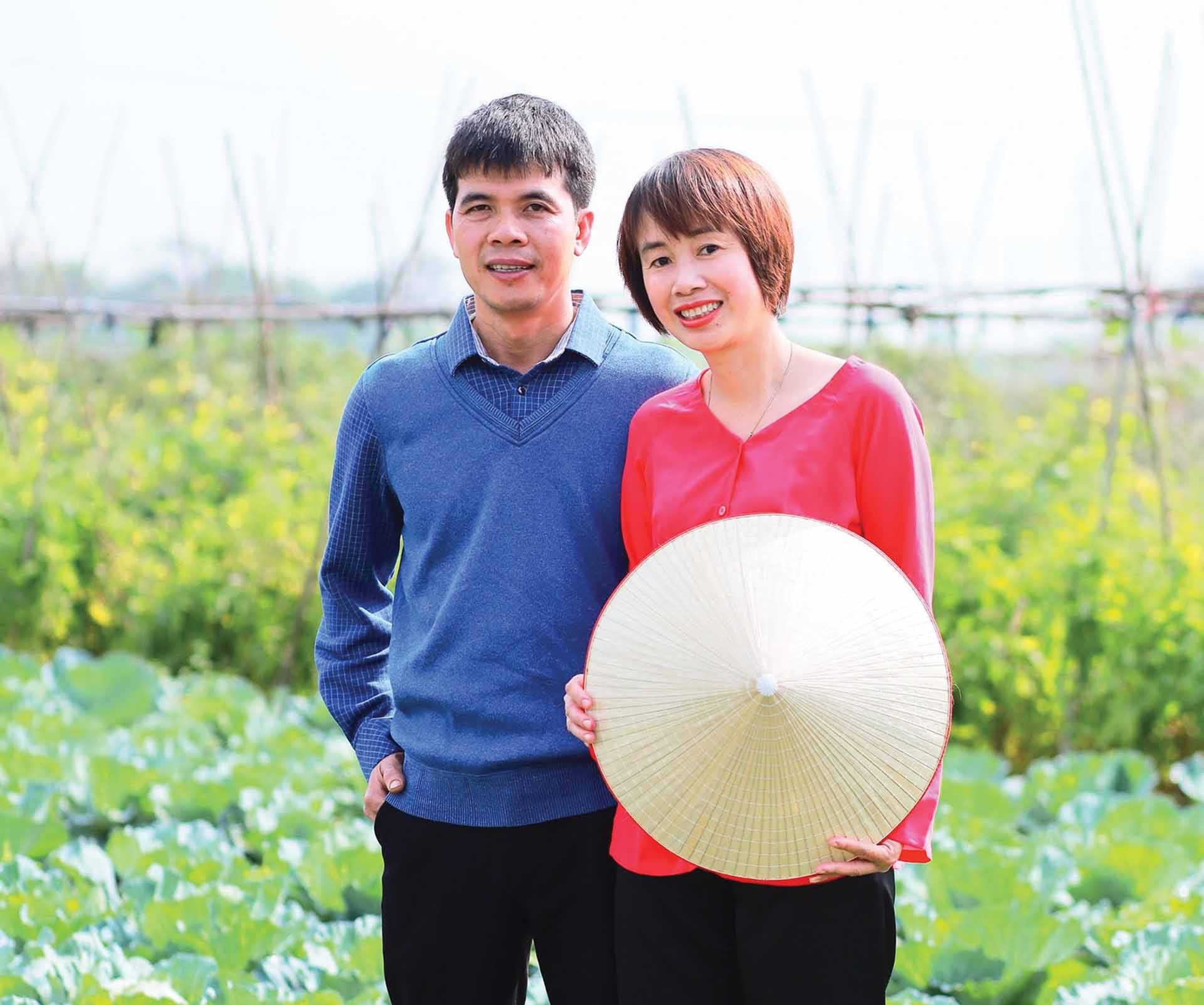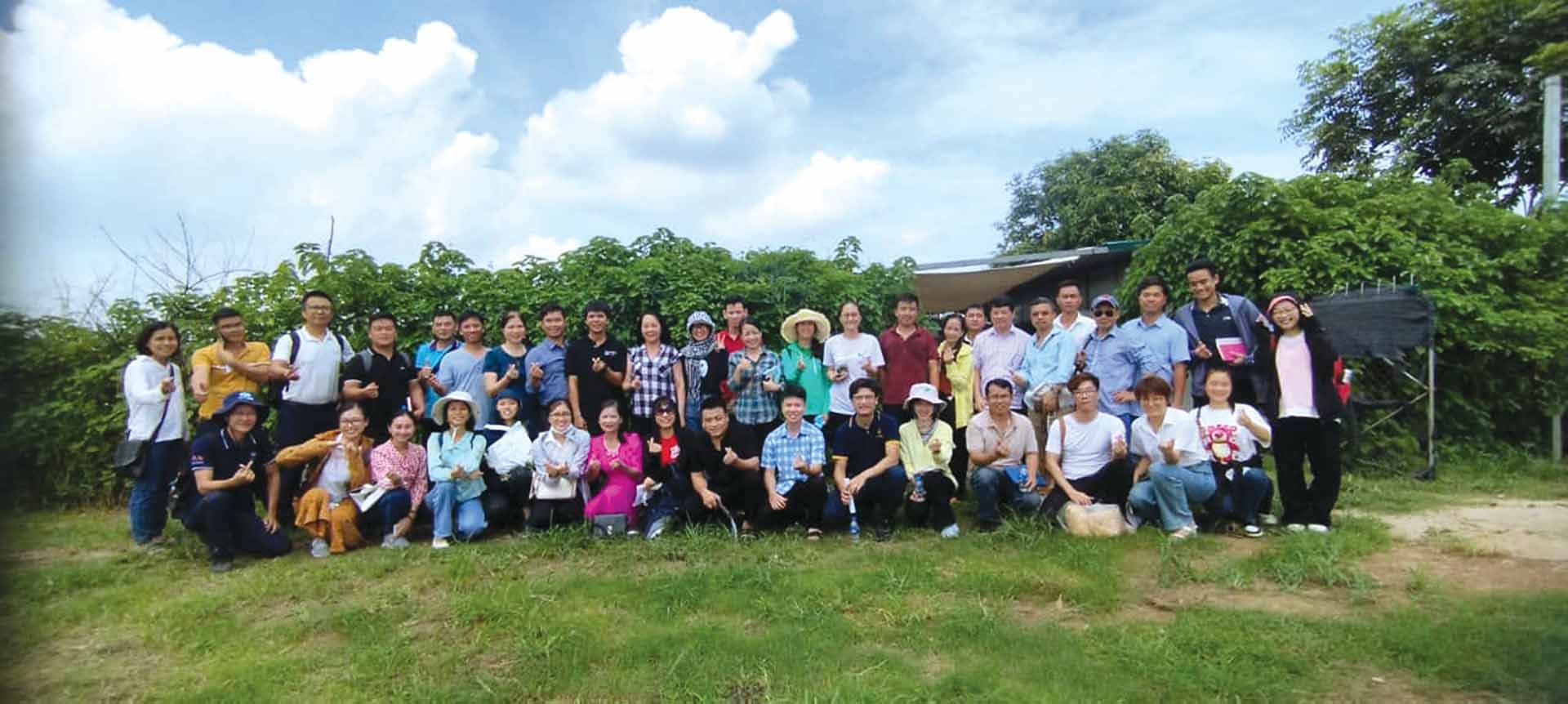
Germinating ‘green sprouts’ in the homeland
Latest
 |
| Mr. Nguyen Duc Chinh and his wife in GenXanh farm. (Photo: Character provided) |
After graduating with a master’s degree at the University of Tasmania (Australia), Mr. Nguyen Duc Chinh and his wife Nguyen Thi Duyen, who also graduated with a master’s degree in agriculture in Australia, decided to return to their homeland to develop an organic green farm.
The couple’s approximately 2-hectare GenXanh farm in Hiep Thuan commune, Phuc Tho district, Ha Noi, is a typical model of green agriculture that many people in the country admire and follow.
Unforgettable years
Nguyen Duc Chinh studied in Australia 10 years ago but his memories from the land of kangaroos are still as vivid as yesterday.
He said: “I was born in a rural area of Ha Tinh province. For those who come from the countryside like me, the Australian scholarship was not just a gift that supported us with English training and offered full scholarships throughout our study period. It also offered us opportunities to know the local culture and the student’s community here, so we were able to quickly integrate into life in the host country and gradually overcame the culture shocks when entering a new learning environment.”
For Chinh, studying in Australia was a turning point in his life: “We lived in the state of Tasmania. This place is a tourist paradise with a peaceful, smooth life and diverse culture. Living abroad has broadened my perspective on the world and Viet Nam.”
What made Chinh feel happier was that during his study abroad, he always received warm affection and help from lecturers, international students and people of the Vietnamese community in Australia.
He said: “We still keep in touch and connect with each other. Teachers in Australia have many times visited Viet Nam and met alumni.”
Getting exposure to the advanced Australian education, Nguyen Duc Chinh was eager to return to Viet Nam to apply the knowledge that he had learnt and accummulated in Australia.
Realizing dreams
The experiences in applying science and technology through agriculture learned in Australia inspired Nguyen Duc Chinh to develop an organic vegetable growing technology, an area of innovation yet to yield its full potential in Viet Nam.
Therefore, after graduating with a master’s degree, he returned to Viet Nam with his colleagues to undertake an organic vegetable project for two years (2014-2016), but for various reasons it was not successful. From 2016 to 2019, he travelled to Japan to study for a doctorate in agricultural biotechnology.
 |
| Guests visit and learn from GenXanh farm. (Photo: Character provided) |
Upon returning to Viet Nam, Chinh and his wife continued to look for land, determined to grow organic vegetables. They found an abandoned lot by the Day River bank, in Hiep Thuan commune, Phuc Tho district, Ha Noi. After negotiating with 35 local households, they rented 2 hectares of land and cooperated with two young colleagues to establish GenXanh organic farm to realize their dream of growing clean vegetables.
In 2021, GenXanh farm’s vegetables were certified to meet organic standards by the Ministry of Agriculture and Rural Development. Having worked through so many difficulties, following their determination to pursue organic vegetable growing technology, their work has been profitable since November 2021. Each month, the farm can supply the market with approximately 4-5 tons of organic vegetables at half the price compared to many other suppliers.
In accordance with organic principles, Chinh also applies many agricultural technologies to farming such as microbiological technology (organic fertilizer is manually composted from eggs, banana juice, manure, composting residues of plant and weeds). He uses an automatic drip irrigation system to improve efficiency and reduce labour effort.
Notably, GenXanh products are guaranteed to meet the 5-zero criteria (no chemical pesticides, no chemical fertilizers, no herbicides, no growth stimulants, no GMO seeds), and at the same time, his farm has created jobs for people in the commune, especially disabled workers.
It is the fourth year since Chinh and his wife’s farm began to turn a profit. Chinh expressed his joy: “So, this means I am on the right track and it’s the answer for my previous concerns. Currently, many people from provinces and cities such as Hai Duong, Lao Cai, Nghe An, Vung Tau... have come to learn and follow my way. From now on, I wish to transfer technology to more people.”
In the future, Mr. Nguyen Duc Chinh wants to invest more in R&D (research and development) to increase productivity, perfect the production and distribution process and continue free training for those interested in the model.
He also wants to expand more farms, invest in building a brand, combine production in many different regions to serve customers as well as to create more jobs for the community.
He shared: “I really appreciate the scientific knowledge I have accumulated during my years of training in Australia and Japan, but I also often tell people that the more I go abroad, the more I feel that home is a livable place.”

















